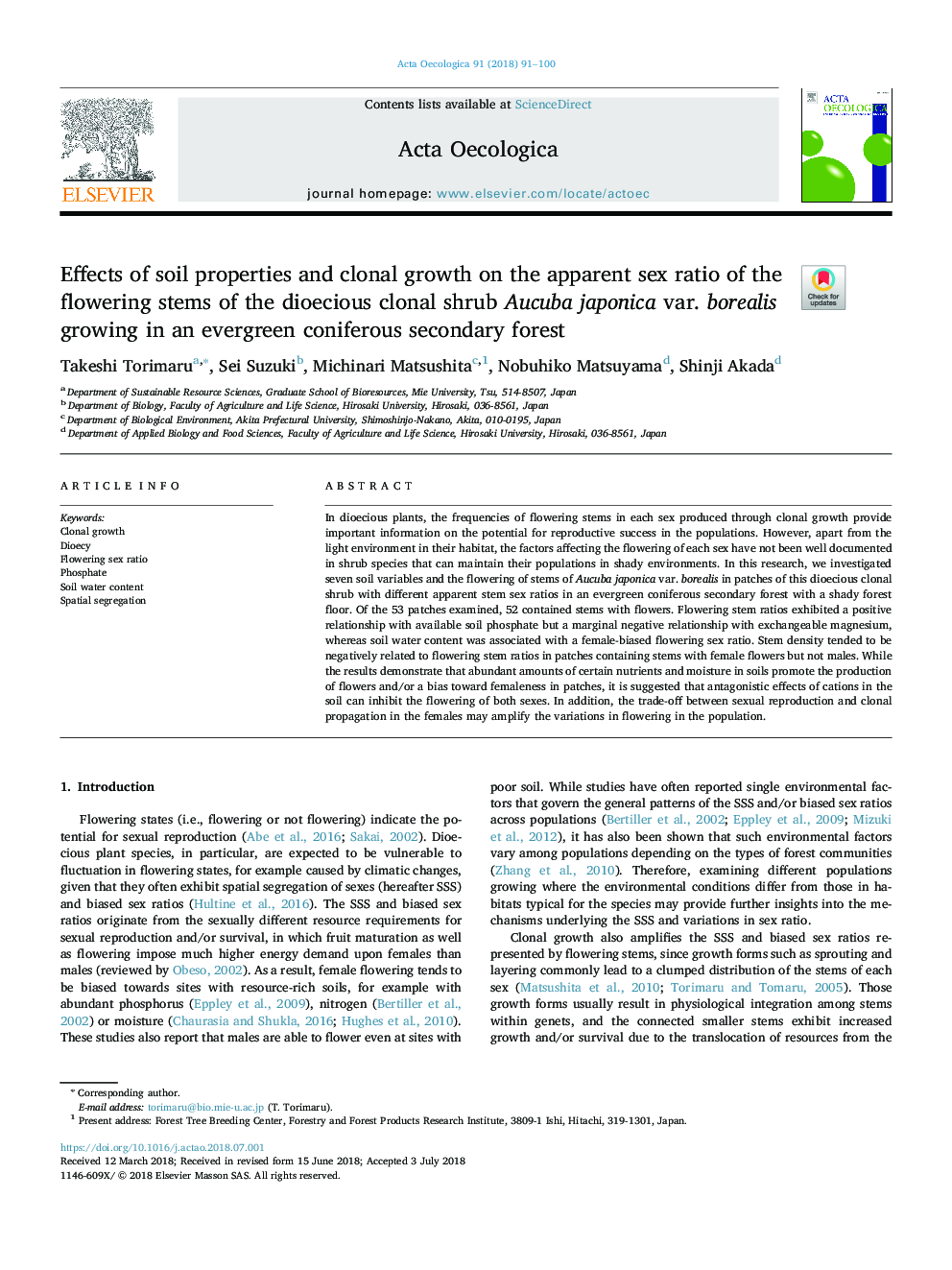| Article ID | Journal | Published Year | Pages | File Type |
|---|---|---|---|---|
| 8846459 | Acta Oecologica | 2018 | 10 Pages |
Abstract
In dioecious plants, the frequencies of flowering stems in each sex produced through clonal growth provide important information on the potential for reproductive success in the populations. However, apart from the light environment in their habitat, the factors affecting the flowering of each sex have not been well documented in shrub species that can maintain their populations in shady environments. In this research, we investigated seven soil variables and the flowering of stems of Aucuba japonica var. borealis in patches of this dioecious clonal shrub with different apparent stem sex ratios in an evergreen coniferous secondary forest with a shady forest floor. Of the 53 patches examined, 52 contained stems with flowers. Flowering stem ratios exhibited a positive relationship with available soil phosphate but a marginal negative relationship with exchangeable magnesium, whereas soil water content was associated with a female-biased flowering sex ratio. Stem density tended to be negatively related to flowering stem ratios in patches containing stems with female flowers but not males. While the results demonstrate that abundant amounts of certain nutrients and moisture in soils promote the production of flowers and/or a bias toward femaleness in patches, it is suggested that antagonistic effects of cations in the soil can inhibit the flowering of both sexes. In addition, the trade-off between sexual reproduction and clonal propagation in the females may amplify the variations in flowering in the population.
Related Topics
Life Sciences
Agricultural and Biological Sciences
Ecology, Evolution, Behavior and Systematics
Authors
Takeshi Torimaru, Sei Suzuki, Michinari Matsushita, Nobuhiko Matsuyama, Shinji Akada,
